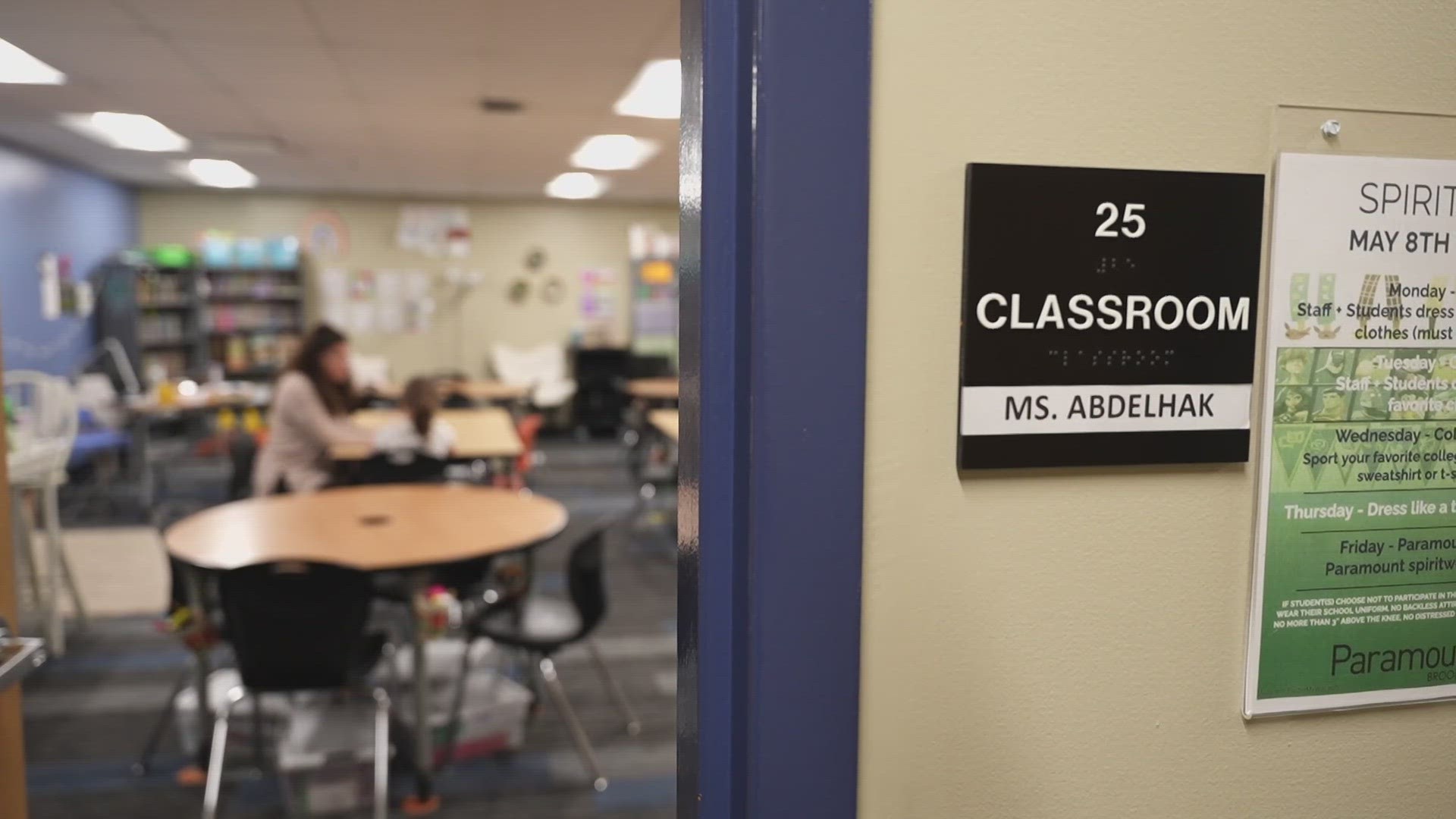INDIANAPOLIS — Teaching is not for the faint of heart.
Layla Abdelhak, 23, chuckles that there are waves of really great days, and waves of really hard days.
But she would not want it any other way.
"I've always loved working with kids," Abdelhak said. "I've always had a knack for it."
Abdelhak began planning for her education career all the way back in middle school. She knew her mom, a single parent, wouldn't be able to put her and her four siblings through college.
"All five of us were on the same understanding — we're going to have to figure out how to pay for it," she said.
That's where the 21st Century Scholars program entered the picture.
The need-based program covers up to 100% of tuition for students who meet the eligibility requirements.
That includes graduating high school with a 2.5 or higher GPA, and participating in programs mapped out by grade.
Abdelhak is grateful for the financial assistance.
If you're a single parent of two kids, the maximum household income is $42,606. For a four-person household, the income limit is $51,338.
"It's life-changing," she said. "I couldn't imagine having to worry every single day about the salary I make, and is it enough?"
Until this year, students needed to enroll in 21st Century Scholars before high school.
It is a deadline that Indiana Commissioner for Higher Education Chris Lowery said many missed.
"We have been only getting 48%, so roughly half of kids who are eligible, signed up," Lowery said. "We can do better than that."
Now, thanks to the bipartisan legislation signed by the governor, students can be auto-enrolled.
Lowery said removing this barrier can significantly reduce — even remove — a student's debt.
"Some people, what they'll find is, they're on their way to homeownership sooner, perhaps are on the way to family formation sooner," Lowery said.
However, some families will still need to manually enroll.
That is because the state pulls its list of eligible students from the free lunch program.
If your family opts out of free lunch, they will still need to enroll before high school. The deadline this year is June 30.
"Should the family miss the June 30 deadline and feel as though they are eligible and do not get automatically enrolled, we have an appeals process," a state spokesperson said.
While funds can be used at certain public or private universities, they can only go toward tuition.
That way, the next generation of professionals can focus on their job duties instead of debt.

